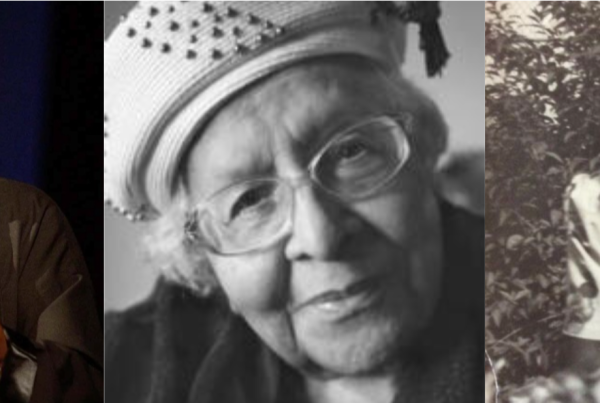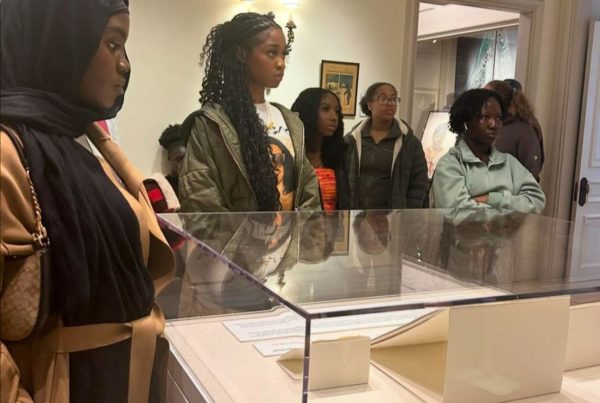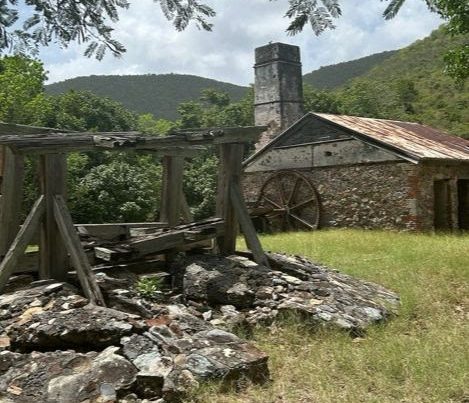From The Executive Director
Executive Director

It is hard to believe that by the time you read this note, April will be on the horizon, and RIBHS will be in the midst of several large and important projects; some of which you can read about in this quarter’s newsletter.
This week feels like I have completed a journey I didn’t know I was on—one that started in the early 2000s when we began fleshing out stories of the African heritage experience in Gilded Age Newport. It started as a simple curiosity about people we knew from stories told by their descendants; names on plaques and gravestones, and objects in our collections. As we delved deeper into their histories, I was profoundly touched by their stories of achievement, of the depth of commitment to their community. That research led us to develop a presentation we delivered at the Rosecliff Mansion in Newport in 2018. It was humbling and exciting to look around the ballroom and realize that African heritage people contributed significantly to what we see as the Gilded Age.
Now, I’m standing in Rosecliff again, surrounded by the portraits, furniture, and artifacts of the men and women who made up the African heritage community in Newport. Pride, gratitude, and love for this work fill me as I look around. Our co-curators, Dr. Christopher West of RIBHS and Nicole Williams of PSNC, and their teams have outdone themselves in creating the exhibit “Gilded Age Newport in Color.”
While I feel like we have completed a journey, we are also embarking on one. This exhibit is a testament to the African heritage community’s achievements, struggles, and commitment as they entered a new century. Their stories enlighten us as we, too, navigate a new century and show us how to travel through life with pride, dignity, and humility.
Notes:
- Danny Lee, our Manager of Education and Community Outreach launched our BirthRiteRI program in January with a cohort of 16 young adults from Rhode Island, and the students are learning a great deal and thoroughly enjoying themselves.
- Also in January, RIBHS received a grant from the National Endowment for the Humanities (NEH) to launch an online storytelling program associated with our archives. Entitled, Through My Eyes, the program, which is led by Aileen Rodriguez Jimenez, Artistic Director, begins officially this month.
- This is the first time RIBHS will include video and audio files in its newsletter. So please take a look.
It’s my great pleasure to share with you “Gilded Age Newport in Color,” will be exhibited at the Preservation Society of Newport County’s Rosecliff Estate from March 15 to June 30. We are extremely pleased to find interested organizations and new venues to share the important histories of African Heritage people in the Ocean State.
Thanks for Reading,
Soni
Archives
By: Andre Robinson
Lead Archivist

| Last year, while going through the archives, I came across a collection of cassette tapes, an oral history project that RIBHS undertook in 1978. It was an incredible find. As valuable as documents, photographs, and objects can be in helping us to understand the past, there are certain things that can be communicated through the human voice that are hard to imitate in other mediums. The way that we speak adds meaning to our words. Whether it’s humor, uncertainty, confidence, sadness, optimism, there are things that can be heard in speech that aren’t always obvious in text. Oral history recordings like these are amazing tools for researchers looking for a deeper understanding of the past.Unfortunately, the estimated lifespan of a cassette tape is fairly short (30 years), so, in order to preserve the interviews on them, we decided to send them to a vendor to be digitized.Digitization is important for modern archivists, not only for preservation purposes, but also because it makes sharing the materials in our collections so much easier. While the original object will always hold value that cannot be reproduced on a screen, having access to the images, the audio, or the text will serve most research needs. Making them accessible to as many people as possible should always be a goal.We recently received the drive with those recordings on them, which were in much better condition than I had initially feared, and are starting the process of creating transcripts of each one. | Among the tapes, we have an interview with Joseph G. LeCount, a prominent Rhode Island lawyer for 60 years, who also served key roles in the local chapter of the NAACP and in social organizations like the Prince Hall Masons and the Marathon Club. At the time of the recording, in 1978, he was 90 years old.In this interview, conducted by the first executive director of RIBHS, Rowena Stewart, LeCount speaks about social clubs, jobs for young Black men in Providence, the NAACP and his work in civil rights, both as an activist and a lawyer, and politics.Because the people being interviewed were all elderly, the age of the cassette tapes, and some shortcomings in the recording setup, it can be difficult to make out everything being said, so it’s important that we work on ensuring the accuracy of the transcripts, which will be a painstaking process.Even making use of transcription software, some words may be missed or be incorrectly transcribed, so having someone go over them will be essential in catching and correcting mistakes. It will take many, many hours of time for each recording, but it’s an investment that I’m positive will be worth it. I look forward to sharing them when they’re ready. |
Natural Hair: The History & The Joy In
The Movement
By: Paige Censale
Brown University Student
Andre Robinson, the Lead Archivist at RIBHS, and Dr. Christopher West, RIBHS Research Director and Inaugural Curator of the Black Diaspora at Brown’s John Hay Library, helped me pore over magazines like Ebony and Jet to see the various trends and products that helped nourish Black women’s hair from the 1940’s all the way until the 1990’s. The RIBHS team’s excitement motivated me to want to tell this story as best as I could, and their archives were critical in making that happen.
By the end of the film, you will see the joy Black people have gained from the rise of the natural hair care movement. Greater awareness of natural hair has resulted in anti discrimination legislation and products widely available to work with our natural hair rather than against it. As a result, Black people are learning to fall in love with their curls, coils and beautiful hair textures.
Without the RIBHS, their incredible resources and their very helpful staff, I could not have produced this film. If you can, Please help them continue this work and the impact they are making in Rhode Island and beyond with a donation. Thank you, and I hope you enjoy the film!
401Gives
By: Dr. Erik Greenberg
Development and Membership Management

401Gives is Coming Soon….
We’re counting down the days to April 1st and 401Gives.
An initiative of the United Way of Rhode Island, 401Gives is a statewide day of giving fueled by the power of social media and collaboration. We need your help to make 401Gives a success, and we’ve included a few easy ways that you can support us.
- Share and share alike: Online days of giving are successful because of networks. Help us grow our network by asking your friends to follow us on social media. You can find us at
- Be socially (media) active: Use your social media networks: post on Facebook, tweet about 401Gives, and share your love for your particular passion, whether it’s education, health care, animals, or the arts. Ask others to do the same. #401Gives @401Gives
- Become a fundraising champion: Everyone loves a champion, including us! We really need fundraising champions to help drive people to our 401Gives profile on April 1st.
Thank you in advance for your support!




I’m contacting you on behalf of the Osher Lifelong Learning Institute at URI. We provide educational opportunities to over 1400 adults over the age of 50 in classrooms on the URI campus. Our members especially are interested in stories of local history. I’m wondering if you offer community outreach presentations with vides or audio content concerning African Heritage in Rhode Island. Our courses are between 1 and 6 class sessions. We learn year round. Right now we are inviting presentations for fall, 2024. Our website is URI.EDU/OLLI. Looking forward to hearing from you! Joan DeFinis, Chair, Curriculum Committee, Olli at URI
Please contact us at origins@riblackheritage.org